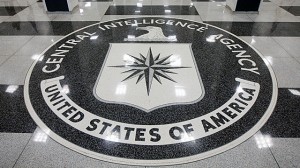
CIA Climate Analysis Unit Closes – Time for a Better Model?
 Last week, Annie Snider at Greenwire broke news that the CIA had closed its Center on Climate Change and National Security.
Last week, Annie Snider at Greenwire broke news that the CIA had closed its Center on Climate Change and National Security.
Having a climate unit in CIA that was focused on climate change like it was some sort of threat that required, secret, classified knowledge was never the way to address this threat.The more effective way to address non- traditional threats like climate change is by sharing information, not keeping it secret. Putting up walls and pretending that CIA had some sort of specialist knowledge on this that other specialists did not was the wrong approach.
This is not something like spying on the Soviets or trying to find bin Laden that requires the utmost secrecy. We don’t need to protect knowledge about climate change and its impacts from foreign agencies, and there’s not something inherently better in the analysis that CIA can provide. The only benefit that CIA did have was that it could provide direct access up the chain of command to the highest levels of power, including the President.
The CIA- and its predecessors in American intelligence – is very good when it is given a clear threat and a defined mission of how to address that threat (penetrate Soviet Intelligence, find bin Laden, predict the whereabouts of Japanese aircraft carriers), but is very bad at picking the most important or imminent threats from a broad cross-section of threats. Examples of these ‘intelligence failures’ are the Pearl Harbor, the fall of the Berlin Wall, or 9/11.
The threat of climate change is much more akin to these problems: it creates broad, almost unknowable contingencies from a series of environmental and social changes. We don’t know where the next hurricane or typhoon will hit, and what security threats that presents. We don’t know how drought and rising food prices will affect social unrest around the world. We don’t know how water shortages will affect interstate conflict in regions with shared water resources. But, we can be sure that some highly classified analysis won’t be able to provide better answers to these questions than the academics and practitioners working in these areas can.
I think a better model was the one that the Department of Energy’s Office of Intelligence and Counter-Intelligence had pioneered back in 2007-2010, that actively engaged climate scientists, social scientists, and political experts in a way to encourage new, cross-sectional threat assessments. Unfortunately, this “Global Energy and Environment Strategic Ecosystem” was quietly closed under Congressional pressure back in 2010.
So, it is a shame that the CIA’s climate center was closed. But, this was not really the venue for the type of multi-variable analysis necessary to preparing for climate change. This is a political setback more than it is a real setback in intelligence. If we can now address this in a smarter way, then it will ultimately be a victory.





